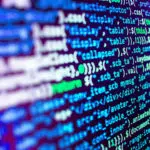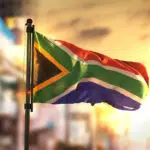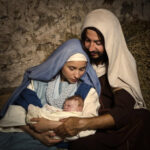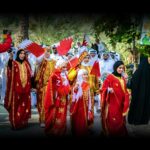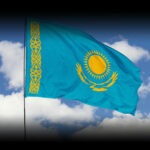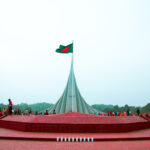South Africa annually observes the Day of Reconciliation on December 16. The apartheid was a racial segregation system that existed throughout South Africa as part of legislation forwarded by the National Party. In 1994, to heal and bridge the gap between the people living in South Africa, this dedicated day was introduced. The Day of Reconciliation has helped bring harmony to a region still after decades of injustice.
History of Day of Reconciliation
Following the long history of a nation still carrying the marks of colonialism to this day, and the accompanying racism which existed due to this practice, the Day of Reconciliation is a breath of fresh air.
Racial exclusion had been a harsh reality in South Africa ever since the rule of the Dutch Empire in 1652. There was no change in the way things were practiced by the time the British took over the country in 1795. Matters worsened in 1950 when the political representation of non-white people was abolished. While this further entrenched the racial segregation policies, a series of violent rebellions was sparked and an embargo on trade against the country took place.
December 16 was chosen for the Day of Reconciliation due to its importance to both the African and Afrikaner people. It was a significant day for Africans as one of the most important protests against racial discrimination had taken place in the year 1910. For the people of Afrikaner, the date also marks the Day of the Covenant – a religious holiday observing the Voortrekker’s victory against the Zulus in the ‘Battle of Blood’ in 1838. The ‘Spear of the Nation,’ or Umkhonto we Sizwe, as it is known in South Africa, was established.
As democracy was established in South Africa, the Day of Reconciliation was first celebrated in 1995. Each year, a different theme is given for this date, and we highly recommend looking into some of them. Over the years, some of the themes in place include ‘Bridging The Divide Towards A Non-Racist Society,’ ‘The Year of Nelson Mandela and Albertina Sisulu: Liberators for Reconciliation,’ and ‘Bridging the Divide: Building a common South African nationhood towards a national development state.’
Day of Reconciliation timeline
The British took possession of South Africa.
Afrikaners celebrate the victory of Voortrekkers in the Battle of Blood River against the Zulus.
One of the greatest leaders of the world - Nelson Mandela, was born.
The Day of Reconciliation is celebrated for the first time to heal the wounds left by the Apartheid.
Day of Reconciliation FAQs
Is Day of Reconciliation a public holiday?
In an attempt to balance the divided past as well as promote national unity, the Day of Reconciliation is a public holiday.
Did the Day of Reconciliation help heal the nation?
The Day of Reconciliation originated to heal the long term rifts among the people of South Africa.
How important is the day of reconciliation in South Africa?
As the apartheid has been one of the most crushing events for South Africa, the day it all ended is of utmost importance to not only its people but all the oppressed groups worldwide. The end of apartheid is a win for humanity.
How To Celebrate Day of Reconciliation
Check out a show or performance
Grab your family and friends and head to a performance. Get entertained and unwind with the important people in your life at one of the numerous shows taking place around the country.
Enjoy the public gardens
Stroll through the public parks and gardens in South Africa and marvel at the most magnificent displays of Protea - the national flower, and the Yellowwood tree. Botanical gardens of Johannesburg or Durban are also great options.
Visit a Heritage site.
With its rich history, it is no surprise that there are countless heritage sites to tour all over the country. We recommend you visit Rivonia and head to the Liliesleaf heritage site, which was a hideout for revolutionary leaders against the apartheid. Today, the place hosts exhibitions, displays artifacts, and serves some of the most delicious meals!
5 Facts About The Great Leader Nelson Mandela
Early Days
In school, Nelson Mandela studied law and was among the first black lawyers of South Africa.
Lifetime Imprisonment
Mandela was imprisoned for life in 1962 for conspiring against the government and treason. He was, however, released early.
The Mandela Redemption
During his time in prison, he became a symbol of hope for those fighting for their rights against oppression in South Africa.
Nobel Peace Prize
In 1993, Nelson Mandela received the Nobel Peace Prize for his peaceful contributions to destroying the regime.
That’s not all
Other than the Nobel Peace Prize, Mandela also got more than 250 awards for his work against the apartheid and establishing democracy in the region.
Why We Love it
Hope and Healing
The Day of Reconciliation is an important day not only for South Africa but for countries all around the world. The history of this day proves that horrible moments can be defeated and that positive change is possible. It demonstrates the resilience of people to heal from tragic injustice.
Beyond Borders, Race, and Color.
It is a sad fact that there are still countless ethnic groups who are discriminated against around the world. With recent movements like #BlackLivesMatter, holidays like Day of Reconciliation further raise awareness and stimulate discussions on healing the damage done and moving forward so hopefully one day we no longer have to talk about racial prejudice.
Great History backing a Great Nation.
Change doesn’t occur overnight, but once a revolution begins, that is when leaders and people really come together to push for what is right.
Day of Reconciliation dates
| Year | Date | Day |
|---|---|---|
| 2025 | December 16 | Tuesday |
| 2026 | December 16 | Wednesday |
| 2027 | December 16 | Thursday |
| 2028 | December 16 | Saturday |
| 2029 | December 16 | Sunday |

